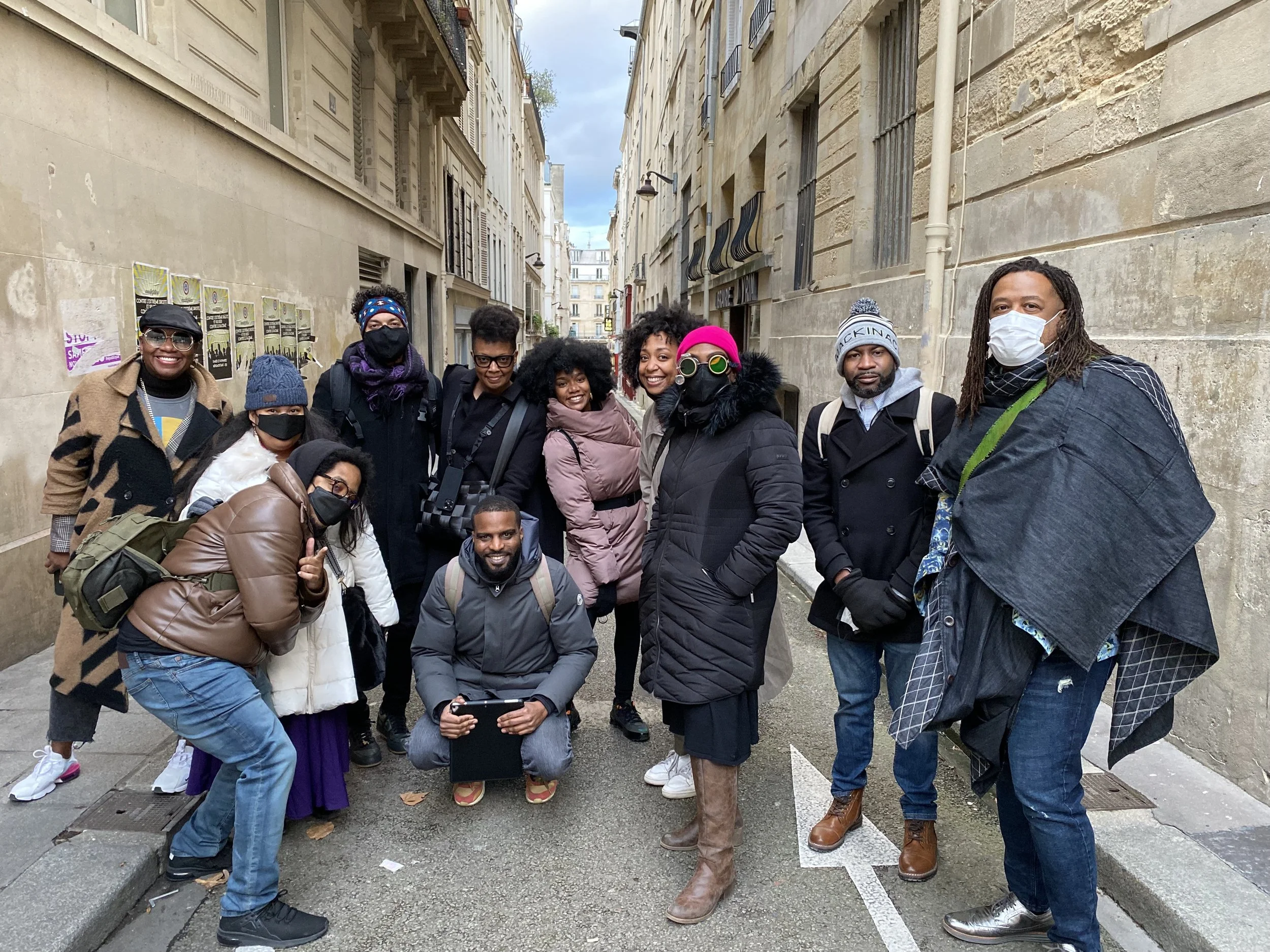Black and Thriving – Detroiters Take Over Paris and Pay Homage to Artist
Written by Sherri Kolade | Michigan Chronicle
“There are decades where nothing happens. There are weeks where decades happen.”
For scores of Black people in Detroit, change is happening for them today because the change was within us all along, says Detroit native Lauren Hood, visionary and urban planning strategist extraordinaire who leading impactful community efforts as the founder/director for a non-profit organization, Institute for AfroUrbanism.
As an AfroUrbanist, Hood creates opportunities for Black folk to positively hold space for their own narratives in Detroit and abroad.
During a recent trip to Paris, Hood and a handful of other Black Detroiters went beyond sightseeing – but planting seeds of purpose and intentionality.
Through the Institute for AfroUrbanism’s “Black Thriving Global Expedition: Paris,” Hood led the trip for Black creatives, photographers, and community stewards who invest in Detroit in more ways than one. The group went to posthumously honor the late legendary entertainer Josephine Baker, who received France’s highest burial honor on November 30 and was officially reinterred at the Panthéon in Paris, Black Information Network reported.
Baker, an entertainer, activist, and war hero is only the sixth woman to be buried at the national monument and the first Black woman and first US-born person and performing artist to be buried there. Born in St. Louis, Missouri in 1906, Baker rose to fame during the 1930s as a singer, dancer, and entertainer. She traveled to France and performed there before becoming a French citizen in 1937.
During World War II, Baker joined the French Resistance and led clandestine operations to support the country’s efforts. She even used her star power to carry coded messages across country lines and refused to perform for Nazis who occupied France at the time.
“The impetus for the journey around Josephine Baker being inducted into the Panthéon (was a) very big deal,” Hood said of the distinction.
Hood added that putting a Black woman in this “high-privileged place” brought out more thoughts surrounding how France honored her while simultaneously still struggling with a “decolonization mentality.”
—-
Continue Reading at Michigan Chronicle

